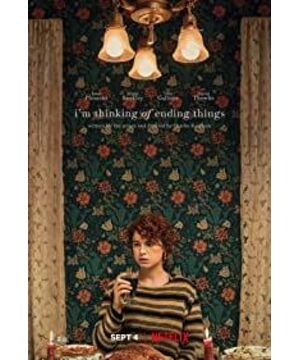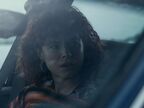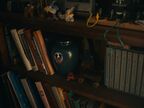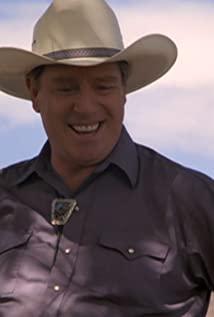I finally felt that I understood a film of this type, and I felt that I had to record the feeling of watching the film, otherwise I would forget it after a while (the protagonist himself)
! May contain spoilers and represent only personal feelings (haven't read the original novel)
A few details: 1. The painting that hangs on the wall shortly after the movie starts is "The Traveler on the Sea of Fog" 2. The female protagonist saw the photos of her childhood at the male protagonist's house, and felt that she could not tell whether it was the male protagonist or herself, because the photos 3. Both the parents of the male lead have Alzheimer's disease, and when their disease attacks, the appearance will go back to the age in memory (will become younger)
At first, I judged that the male and female protagonists may be the same person based on the details of Article 2. In the mid-term, I felt that the male and female protagonists and the male protagonist’s parents were all reflections of the old man who wiped the floor, but when I saw it later, I found that I was wrong (oh, the hint is too obvious. )
Let me start with the conclusion I understand: Grandpa Mobing suffers from Alzheimer's disease, the male protagonist's parents symbolize himself, the male protagonist represents his imagined self, and the female protagonist is the person he imagined to accompany him.
During the period from going to the male protagonist's house to the time when the female protagonist said "I want to end all this", the female protagonist was obedient. She obviously wanted to refuse, but gave up because she was embarrassed to speak and the male protagonist suddenly changed the subject. , duplicitously follow the male protagonist's will. I think this should be the male protagonist's subconscious dependence on and desire to control the other half, probably because of loneliness and longing to be loved and noticed, so he created a female protagonist who is obedient.
After finally leaving the parents' house, the heroine's performance began to reverse, daring to express the opposite opinion, showing a less gentle and considerate, even hysterical side. And in the process, there was a very interesting scene: the hero and heroine suddenly discovered the existence of the grandfather mopping the floor - just like humans discovered God's peep. I think this should be because the old man's Alzheimer's disease suddenly improved, he realized something, maybe it's time to let her go.
Then there is a ballet that I think is great (resonates with the dancing couple when the old grandpa wiped the floor in front (moving out the analysis of Freud's dream)) The hero and heroine fall in love and get married → the heroine is robbed → the hero fights with his rival →The male protagonist could not be beaten and was killed →The real male and female protagonists are separated by this. The rival in love may be the old man himself. He wants to separate the male and female protagonists so that he can break his fantasy and face the reality wrapped in loneliness. The imaginary young himself was killed, indicating that the old man woke up at this time and accepted the reality. (I am not sure about this part, the traces of self-imagination and processing are more than 80%)
This part of the acceptance speech and performance is probably expressing the audience. He accepts it all, and is ready to face the end of his life—to die alone, to be forgotten and buried in the thick snow of time.
He couldn't help but forget, but he didn't want to be forgotten.
I feel that after watching this movie, the director still takes care of the audience.
When I write a movie review, I forget the plot while writing it, there is no one left, that's probably why I give this movie 10 points.
I don't have much logic when I write this, and my analysis is usually pretty unreliable, so just play it
View more about I'm Thinking of Ending Things reviews











